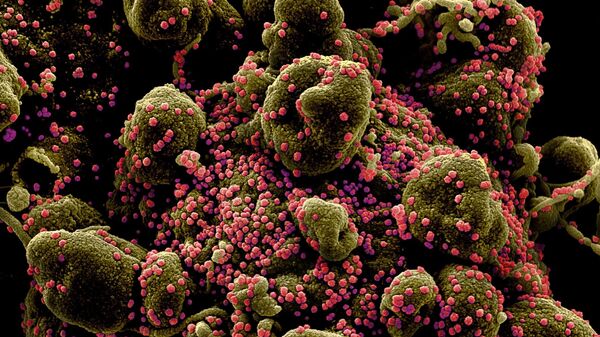A new report from the US Centers for Disease Control and Prevention (CDC) has indicated the B.1.1.7 variant could become the predominant strain in the US by March, as the virus is rapidly spreads across the nation.
Published Friday, the report states that approximately 76 cases of B.1.1.7 have been documented in the US since January 13, and that the new variant is more than likely to threaten already-strained health care resources.
“The modeled trajectory of this variant in the US exhibits rapid growth in early 2021, becoming the predominant variant in March,” reads the report, which notes that its rise will prompt “extended and more rigorous implementation of public health strategies, and increase the percentage of population immunity required for pandemic control.”
“Taking measures to reduce transmission now can lessen the potential impact of B.1.1.7 and allow critical time to increase vaccination coverage,” it adds.
The CDC report highlights that the public must adhere to social distancing, hand-washing and masking practices, as well as isolation and quarantine measures, to ensure that the virus does not spread. The CDC also details the importance of vaccinating every person against the virus.
Additionally, to curb the spread of the pandemic, authors recommend the “strategic testing of persons without symptoms but at higher risk of infection, such as those exposed to SARS-CoV-2 or who have frequent unavoidable contact with the public.”
“These measures will be more effective if they are instituted sooner rather than later to slow the initial spread of the B.1.1.7 variant. Efforts to prepare the health care system for further surges in cases are warranted,” researchers underscored.
At present, the new variant has been found in Connecticut, New York, Pennsylvania, Maryland, Indiana, Wisconsin, Minnesota, Georgia, Florida, Texas, Colorado and California, according to the latest CDC tracking information. The database reveals that most B.1.1.7 cases have been detected in California (32) and in Florida (22).
Officials have also recently grown more concerned with a spike in the 501Y.V2 COVID-19 variant, which was first identified in South Africa. Similar to the B.1.1.7 strain, 501Y.V2 does not appear to be more severe; however, there are worries that it could be more resistant to antibody treatments. The CDC has yet to identify any cases of the 501Y.V2 variant in the US.
To date, the US has distributed over 31 million COVID-19 vaccines, having only administered some 12.2 million. Since taking on the vaccination effort, approximately 1.6 million Americans have received both doses of the approved vaccines.


